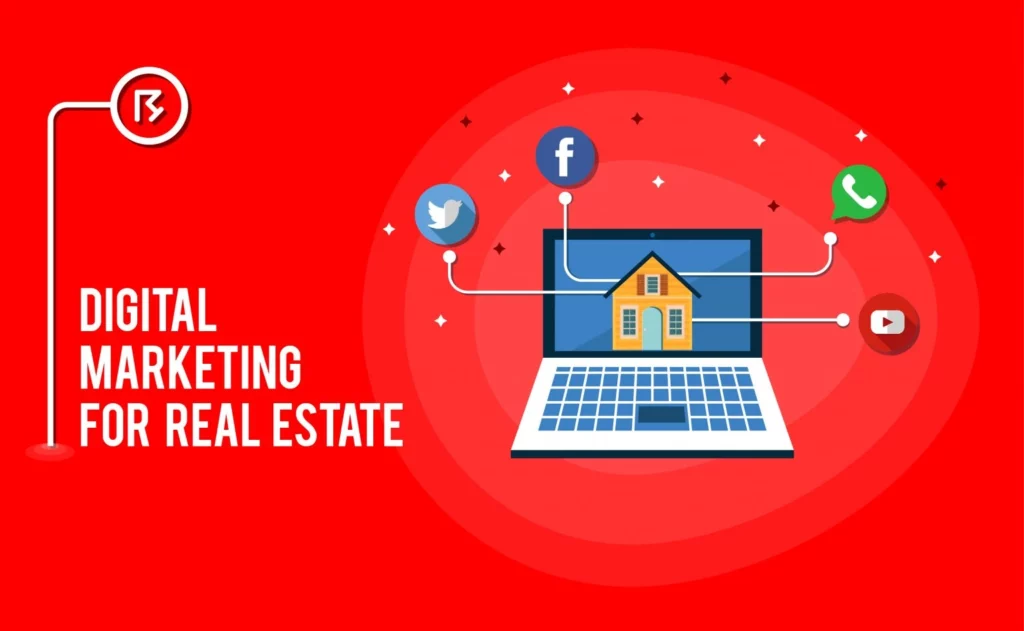The real estate industry has always been influenced by market trends, economic shifts, and technological advancements. However, the digital revolution continues to redefine how properties are marketed, bought, and sold. As we step into 2025, real estate professionals must stay ahead by leveraging emerging digital marketing trends that are reshaping the industry. Here are the five key trends transforming real estate marketing in 2025.
1. Ai-Powered Marketing & Predictive Analytics
Artificial intelligence (AI) is no longer a futuristic concept—it’s a game-changer in real estate marketing. AI-driven tools are helping realtors analyze vast amounts of data to predict buyer behavior, optimize marketing campaigns, and personalize customer experiences.
How Ai Is Impacting Real Estate Marketing:
- Chatbots & Virtual Assistants: AI-powered chatbots provide instant responses to customer queries, improving engagement and lead conversion.
- Predictive Analytics: AI analyzes user behavior and market trends to predict property demand and pricing trends, allowing marketers to tailor their strategies accordingly.
- Automated Lead Scoring: AI ranks leads based on their likelihood to convert, helping marketers focus on high-intent buyers.
- Personalized Content & Ads: AI curates customized content and ad placements, ensuring potential buyers see properties that match their preferences.
By integrating AI into their marketing efforts, real estate businesses can enhance efficiency, improve lead generation, and close deals faster.
2. Immersive Virtual & Augmented Reality Experiences
Virtual and augmented reality (VR & AR) technologies are revolutionizing property viewings, offering buyers a more immersive experience without needing to visit physical locations.
How Vr & Ar Are Shaping Real Estate:
- 360-Degree Virtual Tours: Prospective buyers can explore properties remotely through high-quality virtual tours, saving time and effort.
- AR Property Staging: Augmented reality allows users to visualize interiors with different furniture, décor, or renovations before making a purchase.
- Metaverse Real Estate Showcases: Some real estate companies are setting up virtual property expos within the metaverse, allowing global investors to explore properties from anywhere in the world.
These immersive experiences enhance buyer confidence and accelerate the decision-making process, making VR and AR indispensable tools for real estate marketers in 2025.
3. Hyper-Personalized Social Media Campaigns
Social media remains a dominant force in real estate marketing, but generic ads are no longer enough. In 2025, hyper-personalization is the key to success.
Key Strategies For Personalized Social Media Marketing:
- AI-Driven Ad Targeting: Platforms like Facebook and Instagram use AI to deliver highly personalized ads based on user behavior, interests, and location.
- Influencer & Micro-Influencer Partnerships: Realtors are collaborating with local influencers to build trust and expand their reach among niche audiences.
- Interactive Content: Polls, Q&A sessions, live property walkthroughs, and interactive stories engage potential buyers and encourage direct interaction.
- Short-Form Video Marketing: Platforms like TikTok, Instagram Reels, and YouTube Shorts are being used for bite-sized property highlights and market insights.
By delivering tailored content to the right audience at the right time, real estate marketers can maximize engagement and lead conversions.
4. Voice Search & Smart Assistants For Real Estate
The rise of smart assistants like Alexa, Google Assistant, and Siri has changed how users search for properties. Voice search is becoming a critical component of digital marketing strategies.
How Voice Search Is Impacting Real Estate:
- Conversational SEO Optimization: Real estate websites are optimizing content for natural language queries like “best apartments near me” or “affordable homes in Mumbai.”
- Voice-Activated Property Searches: Some platforms now allow users to search for homes using voice commands, making the process more intuitive.
- Smart Home Integration: Listings that highlight smart home compatibility with voice assistants appeal more to tech-savvy buyers.
Marketers must optimize their content for voice search to remain visible and accessible in the evolving digital landscape.
5. Blockchain & Cryptocurrency In Real Estate Transactions
Blockchain technology is transforming real estate transactions, making them more transparent, secure, and efficient. The integration of cryptocurrency is also expanding investment opportunities.
Key Blockchain Applications In Real Estate:
- Smart Contracts: Blockchain-enabled smart contracts eliminate intermediaries, reducing paperwork and transaction costs.
- Tokenized Real Estate Investments: Properties are being tokenized, allowing fractional ownership and increasing accessibility for smaller investors.
- Transparent & Secure Transactions: Blockchain ensures all transaction records are tamper-proof, building trust among buyers and sellers.
- Crypto Payments for Properties: More real estate transactions are being conducted using cryptocurrencies, appealing to international investors and tech-savvy buyers.
Blockchain’s ability to streamline processes and enhance security makes it a major disruptor in the real estate industry.
Conclusion
The real estate landscape is evolving rapidly, and digital marketing is at the forefront of this transformation. AI-driven analytics, immersive VR experiences, hyper-personalized social media campaigns, voice search optimization, and blockchain-powered transactions are shaping the future of real estate marketing in 2025. To stay competitive, real estate professionals must embrace these trends and integrate them into their strategies. By leveraging these innovations, businesses can attract more qualified leads, enhance customer engagement, and drive higher conversions in an increasingly digital world.


